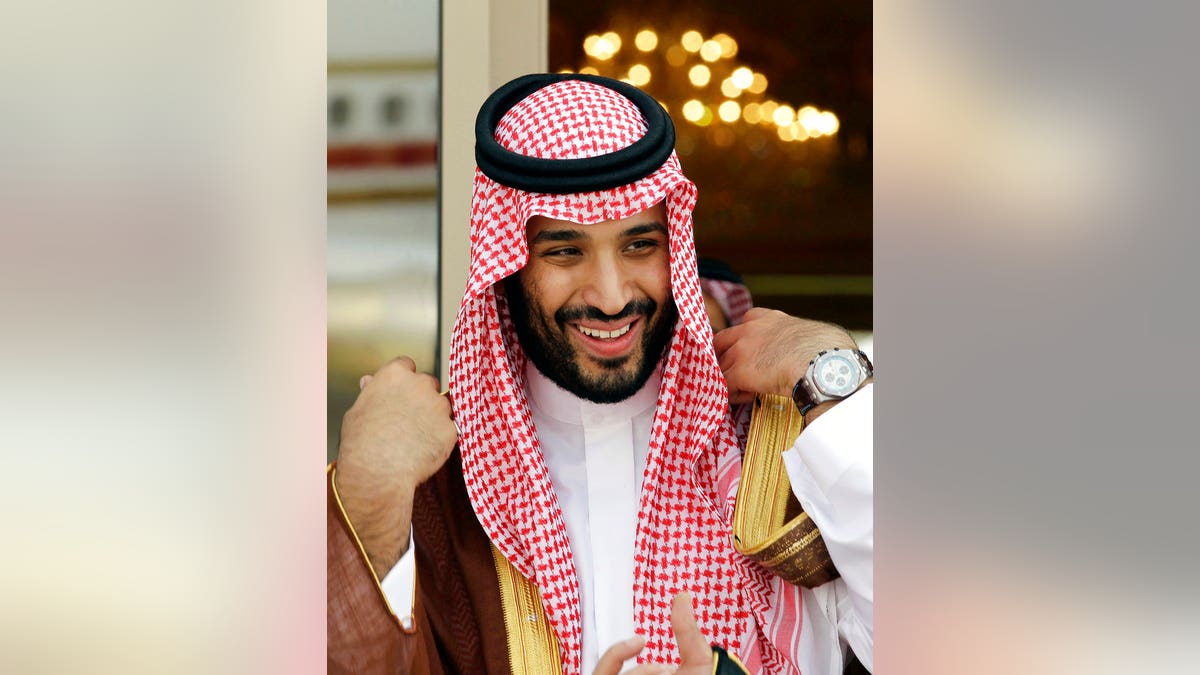
Saudi Prince Mohammed bin Salman (AP)
Saudi Arabia’s crown prince is out to make the Kingdom great again, and like a certain other world leader, he is putting the focus on jobs.
Mohammed bin Salman, who has announced sweeping reforms since taking the reins of the oil-rich nation, recently announced that a dozen key jobs are now off-limits to foreigners. The move, which follows a crackdown on corruption and much ballyhooed measures aimed at diversifying the Kingdom’s economy, is part of Vision 2030, and aimed at ensuring an emerging generation of Saudi workers have employment.
Beginning this September, only Saudi nationals will be allowed to hold certain jobs, mostly related to sales, including sales of medical equipment, electronic devices, cars and furniture.
“There is a lot riding on the success of Vision 2030,” said Gerald Feierstein, director of Gulf affairs at the Middle East Institute and former U.S. ambassador to Yemen. “The risk, if the project fails, is that you will see in Saudi Arabia the same kind of demographic and societal pressures that led to the Arab Spring explosions in 2011,” he said. “Chaos in Saudi Arabia would have obvious implications for regional security and stability as well as for the global economy and access to secure energy markets.”
Behind all the new moves in Vision 230 is the 32-year-old bin Salman. The old guard may be wary of the changes he’s making, but his constituency seems to be the young—and Saudi Arabia is a young country with nearly 70 percent of its population under the age of 30.
According to Feierstein, Vision 2030 has three core elements: Diversify the Saudi economy, grow the private sector as the main engine of Saudi economic development and create employment opportunities for the demographic wave of young Saudis entering the work force.
With oil prices low, Saudi Arabia can no longer rely on this industry to carry its economy, as it did for many years. In addition, the number of Saudis working for the government—well over half of those employed—may not be sustainable either.
With so many young people either just starting to work, or planning to soon, the economy will have to adjust to them or the Kingdom could have an economic crisis. As it is, unemployment is over 12 percent, with worse numbers for the young—males 20-29 are at 23 percent unemployment and females the same age are at 33 percent.
The threat of an “Arab Spring”-style uprising, even in a country as stable as Saudi Arabia, is taken very seriously by those in charge. The formula for trouble, which lit a spark in other Muslim nations not that long ago, is readily apparent in the Kingdom.
Daniel Byman, Senior Fellow at the Center for Middle East Policy, says that the Kingdom’s wealth has not caught up with the changing population, especially in an “economy [that] has long depended on the ups and down of the energy market.”
Because of this, Byman notes, “there is less available overall, and you have a young population that has grown up with high expectations.” So the question is what will the young do if the country doesn’t meet their expectations?
Other problems Byman believes should be addressed include a weak educational system, restrictions on women, and leaders whose decision making is opaque and corruption high.
What could happen? “If economic growth is not robust, young people are more likely to turn against their leaders. It also makes it easier for radicals to recruit,” he said.
That’s why bin Salman may be Saudi Arabia’s last best hope.
According to Karen Elliott House, chair of the RAND Corporation Board of Trustees, a retired Wall Street Journal editor and publisher who won a Pulitzer Prize for her coverage of the Middle East, it won’t be easy.
She doesn’t mince words. The Crown Prince’s “Vision 2030”seeks a “rapid transformation of the Kingdom from one where Saudis’ initiative is completely sapped by tradition and conservative religious restrictions and the majority are dependent on government for jobs and subsidies. In sum, Saudis are almost inert like mummies, trapped in the bindings of conservative tradition and religion.”
In other words, the Crown Prince isn’t just making changes in the economy, he’s attempting, as House puts it, “to transform the psyche of Saudis.” Social changes, such as banning the religious police from harassing young people, is part of a bigger attempt to push Saudi society into a new way of doing things. As House explains it, in the past, the government bought loyalty through its largesse, financed by oil revenues. That’s no longer viable, so the new solution is to encourage Saudis—especially the young—to take responsibility for their own lives and livelihoods.
House has personally observed the beginnings of change.
“I have seen Saudi women working in a restaurant on my visit [in January]," House said. "And many young Saudis now have bought and run food trucks they take around to sell and serve their fellow Saudis at the new entertainment events. Seeing Saudis do something like this would have been unheard of two years ago.”
There has been pushback to these new plans. Bin Salman has offended the religious establishment, as well as many of his relatives (some of whom were arrested in anti-corruption crackdowns). But the important thing is he appeals to the young.
In general, the royal Al Saud family doesn’t believe it has much choice about making this transition. Either prepare the youth of the country for the modern age, or risk instability…and worse.
The world is watching to see how Vision 2030 plays out, with the future of the Kingdom of Saudi Arabia at stake. And if that Kingdom falls, there may be no place on Earth that doesn’t feel the crash.
